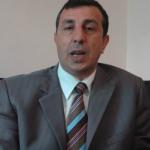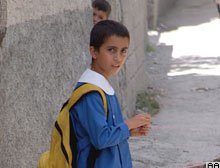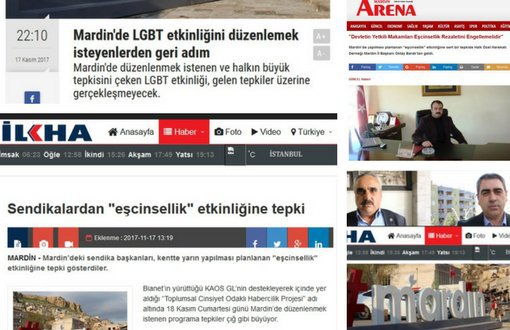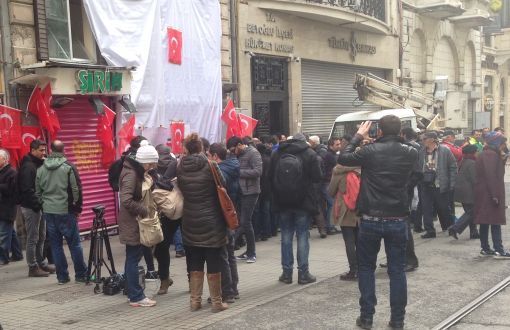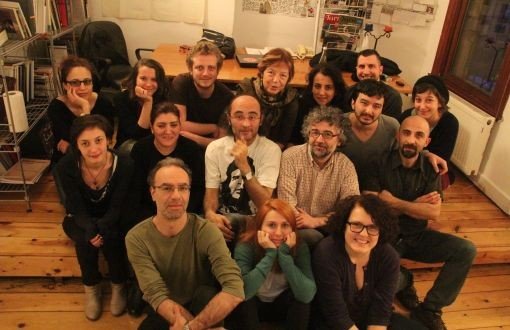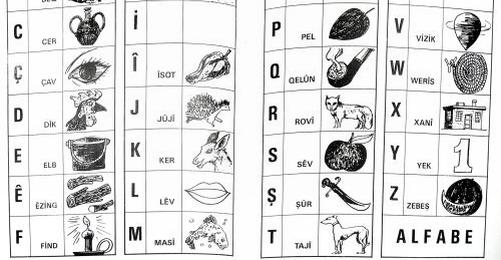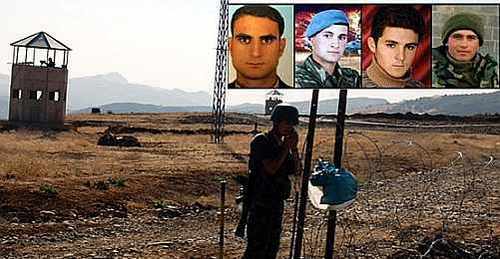Since December 2001, university students and parents of primary schoolchildren have been appealing to the learning institutions to allow Kurdish language courses at every level of training. However, the appeals have fallen on deaf ears.
As the MGK discussed the ''measures'' to be taken against the Kurdish demands, in Istanbul 29 parents have been taken into police custody for having appealed the local authorities for Kurdish courses. In Southeast Diyarbakir 13 schoolteachers are being investigated for ''behaving irresponsibly'' towards the demands.
Throughout the campaign hundreds of applicants have been taken under police custody, 75 of them have been arrested under charges of affiliation with the Kurdish guerrilla PKK, and scores of university students have been temporarily expelled for submitting petitions "contrary to the constitution."
''I have tried to submit the petition so that my 12-year-old son Abdullah could receive training in his mother tongue. But the local National Education Director of the Eminonu district refused,'' complained Muhterem Yel a Kurdish mother.
"I have personally suffered from lack of proper language training in the first two years when we emigrated to Istanbul from southeast," she told IPS. "We were isolated from our Turkish neighbors as we did not have any knowledge of the Turkish language, and we could not train our children in our mother tongue either, for we had nothing but the vernacular," the young mother added.
Turkey's 12 million Kurds are not recognized as an ethnic minority by Ankara. The accepted ethnic minorities in Turkey are the Greeks and Armenians who have gained rights for religious practices, training and publication in their mother tongues with the 1924 Lausanne Peace Treaty.
Kurds, however, have been demanding similar rights since 1960s and these demands have been the catchword for the Kurdish guerrilla PKK in its 15years of armed insurgency against Ankara.
The campaign coincides with Ankara's constitutional amendments in preparation for negotiations for accession in the European Union by 2004. Ina recent amendment passed by the parliament the definition ''prohibited languages'' has been removed from the wording of the Turkish constitution, thereby raising hopes that the official barriers against Kurdish language training might have been lifted in the near future.
''What we are doing is simply enjoying our constitutional right to submit a petition to the authorities. Article 74 of the Constitution endows every Turkish citizen with the right to appeal for any issue that she would like to demand of the government,'' says Metin Dogrul, a university student from Istanbul.
Implying the official charges of separatism against their demands, 'indeed banning a mother tongue itself is separatism,'' he told IPS. ''Until this day we have suffered immense difficulties because of the ban on our mother tongue,'' he says. ''Particularly the younger children are adversely affected. They suffer difficulties in orientation and face psychological disorders. The university students too are cut off from academic progress in their mother tongue,'' he explains.
He is of the opinion that the harassment against their demands, "stains Turkey's efforts to build the image of a democratic country."
According to reports from across the country the number of petitions submitted to the universities for Kurdish courses have already reached around 20 000, in addition to hundreds of petitions submitted by the parents of Kurdish school children.
The campaign is not limited only in the mostly Kurdish populated southeast provinces but also conducted in the bigger Western cities of Ankara and Istanbul with considerable Kurdish emigrant population.
According to reports leaking from the MGK meeting, Turkey's defense and security officials are concerned that the Kurdish demands for training in their mother tongue is not as "innocent" as it might appear. "These demands are part of PKK schemes of gaining national recognition through nonviolent methods," Ankara's security analysts believe.
Pointing at PKK-sponsored overseas activities of building up grassroots organisations across Europe, "the PKK aims at forming a Kurdish government in exile latest in two years," Turkish intelligence sources are reported to have said.
"The PKK is attempting to exploit Turkey's present economic, political and social problems and thus build up a Kurdish nation," they say.
''Is there a rule that we can not demand peace and democracy because the PKK too raises similar demands,'' asks Humeyra Tosun, the leader of pro-Kurdish HADEP (People's Democracy Party) local Women Branches in Istanbul.
''Ban on mother tongue is extremely nonsense,'' she says. ''Look around; there are countries in the world where education is based on four or more different languages. Further, in Turkey we have primary and high schools and universities providing education for Turkish citizens completely in English, French, German and Italian,'' she points at the contradictions.
Denouncing the official harassment against the petitioners, ''the Turkish Constitution does not provide that citizens cannot submit petitions on issues which are not included in the Constitution,'' says Professor Ahmet Insel of Istanbul's Galatasaray University.
''Further, the officials are not obliged to accept the demands forwarded in the petitions.''
''The information that these attempts are backed by the PKK can not justify labeling the demands as 'criminal' either,'' he believes.''Justifying the harassment of the petitioners with ascribing them the intention of bringing the matter before the European Human Rights Court too is invalid,'' he claims. ''If this is their intention this is nothing but legitimate,'' he concludes.





